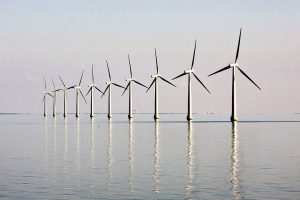
Foreign chambers express support for FDI-friendly charter amendments
By Justine Irish D. Tabile, Reporter
THREE foreign chambers have expressed their support for a proposal in Congress to amend economic provisions of the 1987 Constitution next year to attract more foreign direct investment (FDI).
American Chamber of Commerce of the Philippines (AmCham) Executive Director Ebb Hinchliffe said that the chamber has always recommended the removal of ownership restrictions in the Constitution.
Article 12 of the Constitution limits foreign ownership of land and businesses to 40%, while the remaining 60% set aside exclusively for Philippine citizens or corporations.
“If repeal is not possible, we have also supported proposals to insert the phrase ‘unless otherwise provided by law’ to allow Congresses to deliberate on and pass reforms,” Mr. Hinchliffe told BusinessWorld in a Viber message.
He said that the removal of the restrictions will attract more investment to the Philippines.
“Certainly, there will be more investment (once the restrictions are) repealed or amended. Anything that can make it easier to invest here and fewer restrictions will attract FDI,” he said.
During the second Aquino administration, the House failed to approve the Resolution of Both Houses (RBH) No. 1 on final reading.
Introduced by Speaker Feliciano Belmonte, RBH No. 1 aimed to include the phrase “unless provided by law” in Sections 2, 3, 7, 10, and 11 of Article 12 of the Constitution.
The resolution will also include the phrase in Section 4 of Article 14 and Section 11 of Article 16 of the Constitution.
In 2021, RBH No. 2 was passed on the third and final reading which also proposed to amend sections of Articles 12, 14 and 16.
Written by Speaker Lord Allan Q. Velasco, RBH No. 2 also proposed to add the phrase “unless otherwise provided by law” which Mr. Velasco said is meant to free up the economy to foreign investors as the needs of the time dictate.
British Chamber of Commerce of the Philippines Executive Director Chris Nelson said that the chamber believes the 60-40 ownership rule makes some foreign investors reluctant to invest.
“As you know, there are some businesses where you can only have 40% or minority ownership for foreign entities, and that obviously creates a reluctance in some investors,” Mr. Nelson said in a phone interview.
He said that there is a need to look at certain industries with low foreign participation. He also expressed support for the government’s decision to allow 100% foreign ownership in renewable energy (RE) projects.
“The public service sector should look at those industries and sectors which foreign investors still can’t get into,” he said.
“Clearly, removing those barriers will send a signal to foreign investors as the Philippines is moving even more forward,” he added.
Last year, the implementing rules and regulations of the Renewable Energy Act of 2008 were amended to allow 100% foreign capital in RE projects. Previously, foreign ownership in RE projects was limited to 40%.
German-Philippine Chamber of Commerce and Industry (GPCCI) President Stefan Schmitz said amendments easing restrictions for foreign investment will be positive for FDI.
“We believe that easing these restrictions will significantly enhance investment flexibility, crucial in attracting substantial FDI,” Mr. Schmitz said in a Viber message.
“This influx of FDI is not only expected to generate numerous job opportunities for Filipinos but also essential for the Philippines to maintain its competitive edge in the rapidly evolving ASEAN market,” he added.
He said that the chamber’s support for these reforms reflects the findings of the Fall 2023 AHK (German Chamber of Commerce) Business Outlook Survey in which economic policy conditions in the Philippines were named as a primary concern among German companies.
“The relaxation of these economic restrictions on foreign investors is thus seen as a significant change that can substantially benefit our business community,” Mr. Schmitz said.
He said that the GPCCI realizes that reforms will be complex process and thus commits to supporting initiatives that will lead to a more dynamic, inclusive, and robust Philippine economy.
“We recognize that reforming constitutional economic provisions is a lengthy process. However, the GPCCI is steadfast in advocating for a thoughtful, inclusive, and efficient amendment process,” he added.
Net inflows of FDI slumped to $422 million in September, the lowest level in over three years. This was 42.2% lower than the $731-million FDI inflow seen a year earlier and 46.5% lower than the $790 million a month prior.
This brought the nine-month FDI net inflow to $5.9 billion, representing a 15.9% decline from the $7 billion a year earlier.



